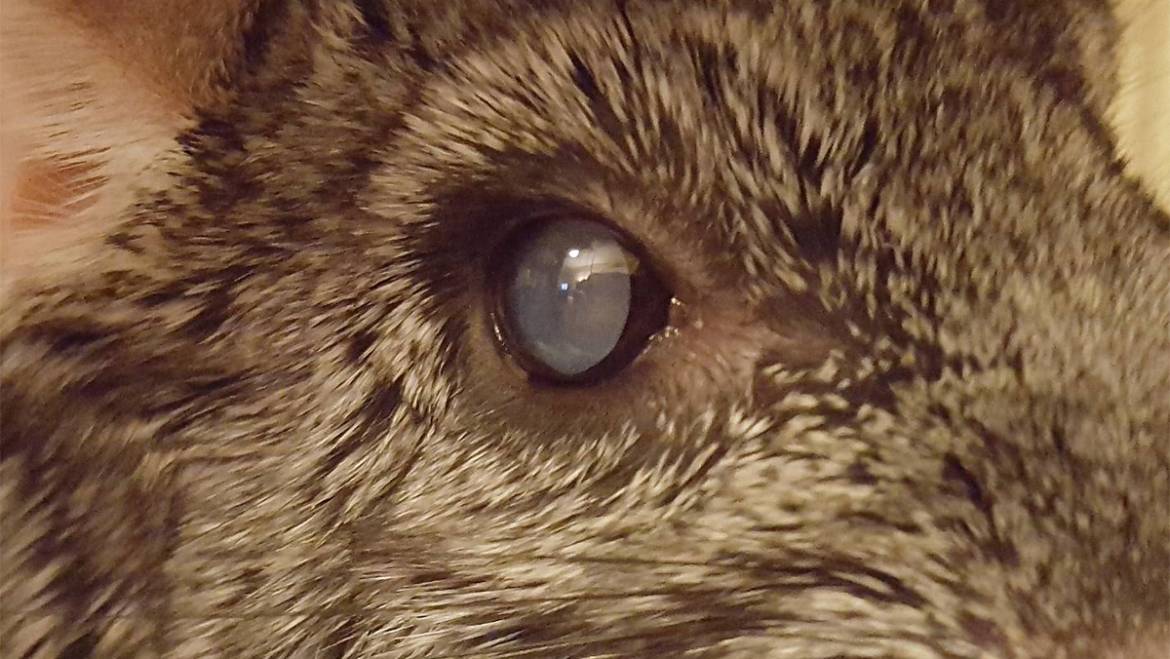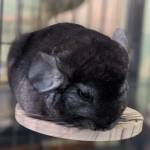Chinchillas, with their inquisitive eyes and fluffy appearance, are intriguing pets that bring joy to many households. However, these charming rodents can suffer from a variety of health issues, including eye problems. As chinchilla owners, it’s important to stay informed about potential issues to ensure the well-being of our furry friends. This article will delve into the common eye problems in chinchillas, their causes, symptoms, and treatment options, to help you in providing the best possible care.
Common Eye Problems in Chinchillas
– Eye Infections
Eye infections are common in chinchillas and can be caused by bacteria, fungi, or viruses. They are often the result of unsanitary living conditions, so it’s crucial to maintain cleanliness in your chinchilla’s environment. Symptoms include redness, swelling, pus or discharge, squinting, and frequent blinking. Treatment typically involves antibiotics, antifungal medications, or antiviral drugs, depending on the cause of the infection.
– Conjunctivitis (Pink Eye)
Conjunctivitis, or pink eye, is an inflammation of the conjunctiva, the clear tissue that covers the white part of the eye and the inner side of the eyelids. It can be caused by an allergic reaction, bacterial or viral infections, or injury. Signs of conjunctivitis include red, swollen eyes, watery discharge, and discomfort. Treatment options include cleaning the eye area, antibiotics, or anti-inflammatory drugs.
– Corneal Ulcers
Corneal ulcers occur when there’s a break in the cornea’s outer layer. These can be caused by trauma, dry eye, or infection. Symptoms include watery eyes, squinting, redness, and sensitivity to light. Depending on the severity, corneal ulcers may require pain medication, antibiotics, or even surgical intervention.
– Entropion
Entropion is a condition where the eyelid rolls inward, causing the eyelashes to rub against the eye surface. This condition can lead to corneal ulcers and infections. Symptoms include eye irritation, excessive tearing, and eye redness. Treatment typically involves surgery to correct the eyelid position.
Prevention of Eye Problems in Chinchillas
When it comes to eye health in chinchillas, prevention is the most effective strategy. Regular care and attention can help to significantly reduce the risk of eye problems. This involves maintaining a clean habitat, regular grooming, and providing a balanced diet, among other considerations.
– Maintain a Clean Habitat
One of the primary ways to prevent eye problems in chinchillas is by ensuring they live in a clean and safe environment. Regularly clean your chinchilla’s cage to remove waste and leftover food that could breed bacteria, fungi, or viruses. This is particularly important for preventing eye infections. Additionally, avoid using bedding materials that are dusty or can easily break apart into small pieces that might get into your chinchilla’s eyes.
– Regular Grooming
Chinchillas have dense fur that can collect dust and debris. Regular grooming can help keep these particles away from their eyes. Be gentle when grooming around the face and eyes to avoid causing any irritation or damage. Additionally, chinchillas should be given dust baths 2-3 times per week. These baths help chinchillas keep their fur clean and free of excess oils, but ensure the dust doesn’t get into their eyes.
– Balanced Diet
A balanced diet is crucial for overall health and can play a significant role in preventing eye problems. Chinchillas require a diet high in fiber and low in fat. Their primary food should be grass hay, supplemented with high-quality chinchilla pellets. Fresh fruits and vegetables can be given in moderation, but always research before introducing new foods.
Vitamin A deficiencies can particularly lead to eye issues in chinchillas. While severe deficiencies are rare, it’s important to ensure your chinchilla is getting enough of this vitamin, which can be found in dark leafy greens and certain fruits and vegetables.
– Regular Check-Ups
Regular veterinary check-ups can help detect any early signs of eye problems or other health issues. A vet can thoroughly examine your chinchilla’s eyes and provide advice on preventive care. Even if your chinchilla appears healthy, routine check-ups are a good practice for early detection and prevention of potential issues.
– Safe Toys and Accessories
Chinchillas are active animals that love to chew and play. Make sure the toys and accessories you provide are safe and do not pose a risk of injury to their eyes. Avoid toys with sharp edges or small parts that could potentially harm the eye.
When to Consult a Veterinarian
Early detection is vital when dealing with eye problems in chinchillas. If you observe any changes in your pet’s eyes, such as redness, swelling, discharge, or if they seem to be in pain, don’t hesitate to consult a veterinarian. Remember, self-diagnosis and treatment can lead to complications. Professional help is the best course of action in these scenarios.
Eye problems in chinchillas are a serious concern that requires attention and care. As a responsible chinchilla parent, your vigilance in observing any changes in your pet’s eyes can make a significant difference. Familiarize yourself with the symptoms of common eye conditions and ensure a clean, safe environment for your pet. With the right knowledge and care, you can keep your chinchilla’s eyes bright, healthy, and full of curiosity.







